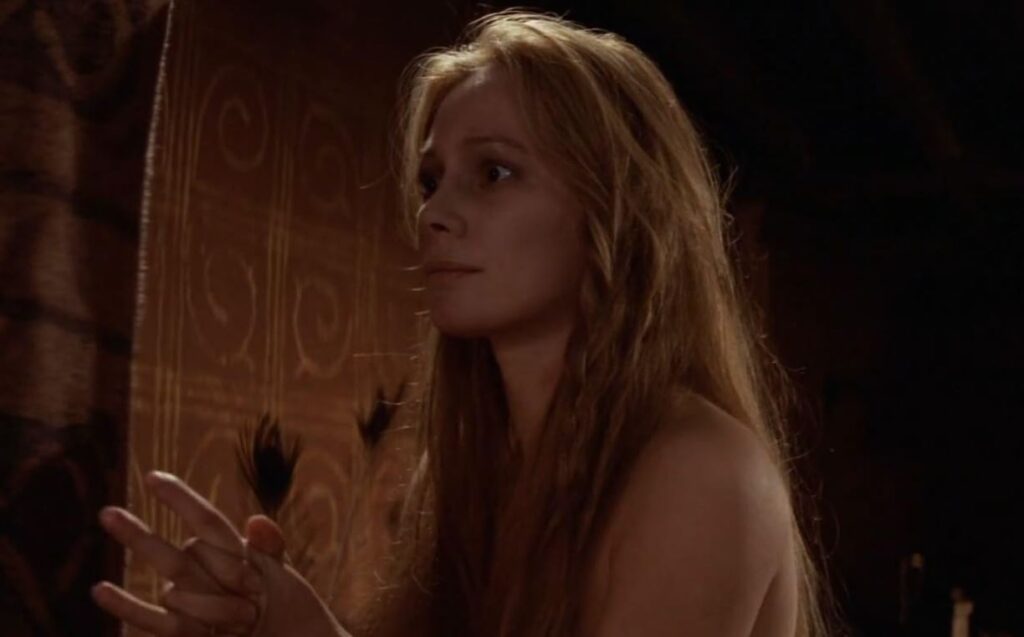
Francesca Annis in Macbeth (1971)
The Moors Murderers were a pair of serial killers that abducted and sexually abused five kids in the 1960s before burying them in some of England’s loneliest patches of land. Sullen, anti-social instigator Ian Brady was always going to get into serious trouble, but whether the Scot would have done something so monstrous on his tod is open to debate. Many think it was his warped connection with his dull, ordinary girlfriend Myra Hindley that provided the blue touch paper, a toxic chemistry of dominance and submissiveness that powered the Nazi-admiring, sadomasochistic couple toward murder.
Shakespeare, a man who knew a thing or two about psychology, captures a similarly queasy union in his play almost four centuries earlier. Lady Macbeth (Annis) starts off as the leading force in Polanski’s visceral, demon-confronting box-office bomb. She comes up with the idea of murder after the three witches have told her hubby he will rule Scotland. This is despite the fact that Duncan, the reigning king, is a nice old guy who treats them both well. When she hears he will be spending the night at their isolated, chilly-looking castle, she delights in neutralizing Macbeth’s squeamishness before caressing his worried face and urging: “Look like the innocent flower, but be the serpent under it.”

Slender, young, beautiful and not averse to a bout of bear-baiting, the ruthless Lady Macbeth is true to her word. She has filled herself ‘top-full of direst cruelty’ yet appears as a ‘fair and noble’ hostess. Macbeth (Jon Finch) is still hesitating about the planned treachery (“We will proceed no further in this business”) but she turns on the tears, questions his manhood and insists he ‘screw his courage to the sticking place’.
Talk about twisting a guy around your little finger…
A moment after informing Macbeth of a plan to drug Duncan’s guards later that night, the king takes her hand and they dance together. Lady Macbeth is all smiles and gaiety, remarkably light on her feet as she looks her imminent victim in the eye. No wonder Macbeth says of his conniving wife: “Bring forth men children only!”
Once he does the terrible deed, his wife, although equally rattled, takes charge once again. It is she who returns the bloody daggers to the king’s bedchamber to frame the zonked-out guards before smearing their faces with the all-incriminating blood. And, of course, once the murder is discovered, she is a most convincing actress, even able to later come up with spontaneous excuses for her hallucinating hubby’s bizarre public behavior.

It’s clear Macbeth would never have killed Duncan alone. He needed his ‘gentle lady’ (just like Brady needed Hindley) to provide the noxious lubricant in a fatal bond forged from love, sex, tenderness and megalomaniac tendencies. The duplicitous Lady Macbeth is no super-bitch, though, no Shakespearean Catherine Tramell. She might be the catalyst for murder, a topsy-turvy combination of a masculine core cloaked in beguiling femininity, but she proves unable to cope with the tide of violence she unleashes in an increasingly dominant husband.
Leave a Reply